Behind the News
Behind the News: All the backstories to our major news this week
Published
8 months agoon

Over the past week, there were lots of important stories from around the African continent, and we served you some of the most topical ones.
Here is a rundown of the backstories to some of the biggest news in Africa that we covered during the week:
1. Tinubu wins as Nigeria’s election tribunal delivers verdict
The much-anticipated verdict of the Nigerian Presidential Election Petition Tribunal (PEPT) was delivered on Wednesday, affirming the victory of President Bola Tinubu as winner of the February 25 presidential election.
In giving its judgement, the five-man panel of the Tribunal led by Justice Haruna Tsammani unanimously upheld the election of Tinubu of the ruling All Progressives Congress (APC), while throwing out the petitions of losing candidates, Atiku Abubakar of the Peoples Democratic Party (PDP), and his counterparts in the Labour Party (LP), Peter Obi, and Princess ChiChi Ojei of the Allied Peoples Movement (APM).
The three parties, which sought a nullification of Tinubu’s victory in their petitions, had cited various grounds ranging from electoral fraud, violence, ineligibility, intimidation of voters, as well as non-compliance with electoral law and guidelines.
In the aftermath of the judgement, the aggrieved parties resolved to take their fight to the Supreme Court, while their supporters voiced out their discontent.
The buildup to the tribunal verdict threw up some controversies; supporters of the opposition ran a campaign of “All Eyes on the Judiciary” to pressure the judges. This led to at least one of their outdoor advertising bearing the inscription to be pulled down in Abuja, the nation’s capital, and the official who approved it, suspended.
The country remains divided over the ruling, as with the initial election outcome. While President Tinubu has called for unity, his opponents are determined to pursue their case to the end.
2. African Union officially joins G20
During the outgone week, Africa welcomed the exciting news of becoming a permanent member of the G20, the economic cooperation forum which has 20 of the biggest economies in the world.
Indian Prime Minister, Narendra Modi, who made the announcement on the sidelines of the G20 Summit in Delhi, said on X:
“Honoured to welcome the African Union as a permanent member of the G20 Family. This will strengthen the G20 and also strengthen the voice of the Global South.”
What the permanent membership of the G20 means for Africa is that the continent will now play a leading role in the decision-making of the multilateral bloc that will affect international trade, health, global debt system, energy, cryptocurrencies regulation, as well as food security.
Economic analysts on the continent are hopeful that with the permanent membership of G20, Africa will free itself from being on the receiving end of global power imbalance, and be able to directly determine its destiny on the global stage.
3. Moroccans mourn as deadly earthquake devastates country
The North African country of Morocco was thrown into mourning after a devastating 6.8 magnitide earthquake hit the tourist city of Marrakech, killing over 2,012 people with another 1,400 injured on Friday night.
The earthquake, which has been described as the deadliest the country has witnessed since a
quake in 1960 destroyed the town of Agadir, killing more than 12,000 people, had its epicentre in the High Atlas Mountains, south-west of Marrakesh.
According to US Geological Survey, tremors from the quake was felt in the capital Rabat, about 350km away, as well as Casablanca, Agadir, Essaouira, Algeria, and as far as Portugal,
“Many of the victims are thought to have been in remote areas, with deaths confirmed in the provinces and municipalities of Marrakesh, al-Haouz, Ouarzazate, Azilal, Chichaoua and Taroudant,” the Moroccan Interior Ministry said in a statement.
The earthquake has elicited responses from around the world, with various countries like the USA, the UK, France, Germany, Israel and international organisations sending aid and relief materials to the victims.
Though the final death toll is yet to be determined, rescue organisations say it could rise above the present figure as many people were believed to still be trapped under the rubbles in provinces and municipalities of Marrakesh, al-Haouz, Ouarzazate, Azilal, Chichaoua and Taroudant.
“People are also feared to be trapped there, with a family said to be in the rubble of their house in the town of Al-Haouz, near the epicentre,” a Red Cross official said.
4. Zambia to the world as rapper, Sampa the Great gets first BET Award nomination
It was another exciting news for Zambia as budding rapper, Sampa Tembo, also known as Sampa the Great, became the first ever act from the country to be nominated for the coveted 2023 BET Hip-Hop Award slated for October 3rd in Atlanta, Georgia, USA.
The International Flow of the awards is the only category that celebrates Hip-Hop artistes from countries outside the USA, which takes in musicians from other continents like Africa, the United Kingdom, France, and Brazil.
Getting the nomination goes to show that Sampa the Great is one of the most talented acts in the continent at the moment.
Her nomination, apart from bringing to the fore her inherent talent and musical prowess, also projects the talents that abound across Zambia and Africa in general.
Zambian media outfit, Zambia Monitor captured the moment, thus:
“Her unique style and lyrical prowess have left an indelible mark on the hip-hop genre, and this recognition on the BET Hip Hop Awards stage further cements her place in the international music scene.”
5. Nigeria makes history in Ballon d’Or awards nominations
A few surprises were expected in the nominations for the 2023 Ballon d’Or awards but it was a history-making moment for Nigeria as the country became the first in Africa to have players in both the male and female categories.
In the male category, Super Eagles and Napoli striker, Victor Osimhen made the shortlist, while Super Falcons and Barcelona forward, Asisat Oshoala, made the cut in the women’s section.
On the whole, four male African footballers made the 30-man shortlist of contenders for the prestigious Ballon d’Or award.
The list has Cameroon and Manchester United goalkeeper, André Onana, Liverpool and Egyptian striker, Mohamed Salah, Morocco and former Sevilla safe hands, Yasmin’s Bounou, as well as Osimhen. Oshoala was the only female nominee from the continent.
The award, which will reward the best player in the world, will be decided by votes from journalists from FIFA’s top 100 top-ranked nations, while the winners will be announced at a gala in France in October.
You may like
-


In 30 years, half of Nigerian biscuit companies went out of business— Manufacturers
-
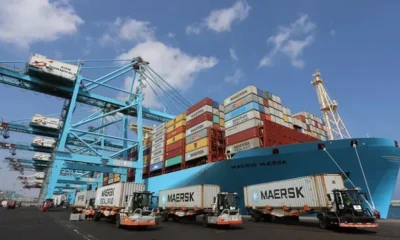

Nigeria gets $600 million investment from Danish firm Moller-Maersk
-
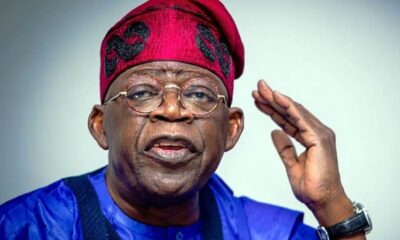

I saved Nigeria from bankruptcy by removing fuel subsidy— Tinubu
-


Behind the News: All the backstories to our major news this week
-
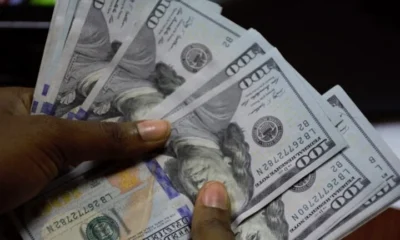

Nigeria: Bureaux De Change operators to harmonise retail FX market
-
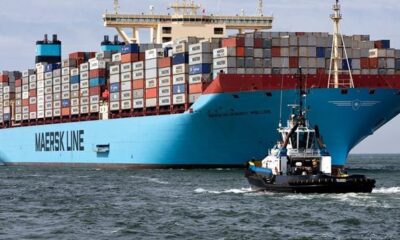

Nigeria loses $9.2 billion to foreign shipowners
Behind the News
Behind the News: All the backstories to our major news this week
Published
3 days agoon
April 28, 2024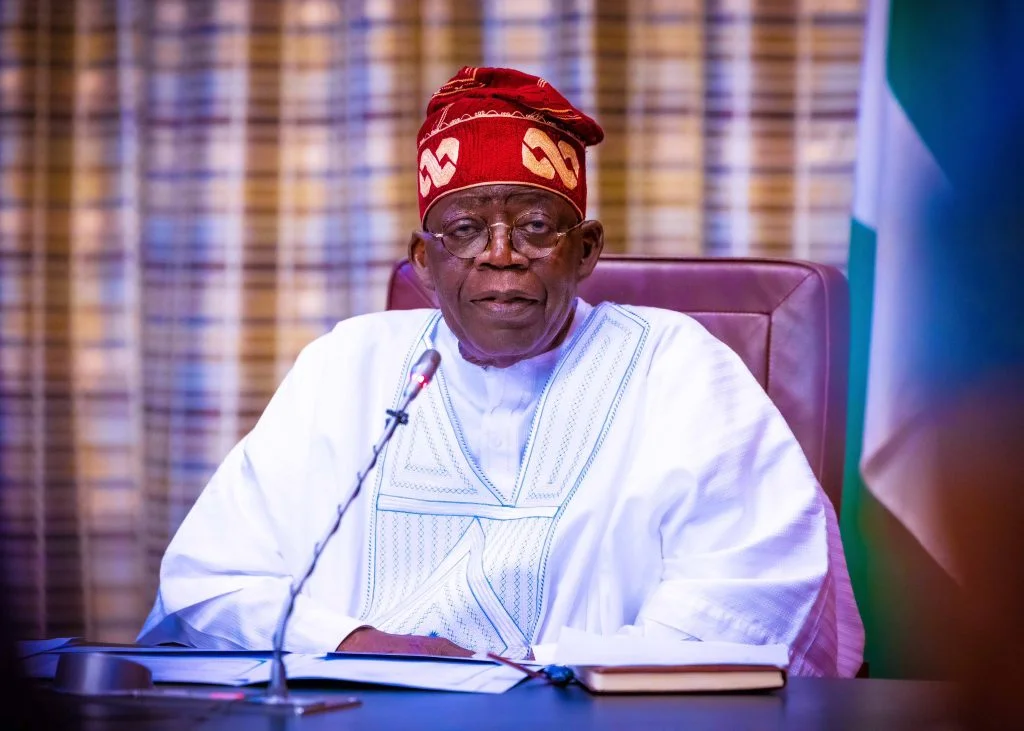
Over the past week, there were lots of important stories from around the African continent, and we served you some of the most topical ones.
Here is a rundown of the backstories to some of the biggest news in Africa that we covered during the week:
1. Renewed Hope: Tinubu’s regular sing-song and the sad reality of Nigeria
During the week in review, Nigeria’s President Bola Tinubu was once again at his rhetorical best when he pronounced the all the tough policy decisions and reforms he has undertaken since coming into office almost a year are have been in the best interest of Nigerians and the good of the country.
Tinubu who spoke during a bilateral business session with Dutch Prime Minister Mark Rutte at the Hague in the Netherlands, said every of his decisions were taken with the interest of his fellow citizens at heart.
He reiterated that his policies which have caused pains and anguish for Nigerians were in their best interest.
“I am a determined leader of my people. I am ever ready to take tough decisions in the best interest of the people, even if with initial pains,” Tinubu said.
“I have and will continue to take the difficult decisions that will benefit our people, even if there is short-term pain,” he added.
But beyond the regular promises of better days ahead by Tinubu and his team, the reality on ground in the country does not seem to align with so much optimism.
The first sign that things were going to be tough was when Tinubu pronounced the end of fuel subsidy in his inaugural address to the nation on May 29, 2023, without as much of a plan to ameliorate the anticipated economic crisis that was to follow.
Despite later attempts to provide some succour and buffers to cushion the effects of the subsidy removal, things have gone from bad to worse with the cost of living rising through the roof.
Inflation has gone up to an all time high of 30.20% according to the Nigeria Bureau of Statistics while prices of basic goods have gone beyond the reach of the average Nigerians, many who find it difficult to provide for their families.
But to President Tinubu, the pains and hardship Nigerians are currently going through will soon be a thing of the past because, according to him, his “tough policies” would yield positive results in the end.
“We have gone through the worst of the storms. I am unafraid of the consequences once I know that my actions are in the best long-term interests of all Nigerians,” he posited.
Nigerians are indeed waiting patiently for the fulfilment of these promises and are looking forward to a time they will go back to living a normal life again!
2. Discriminatory Chinese supermarket meets its match as Nigerian govt shuts mall
A Chinese supermarket located in the heart of Abuja, Nigeria’s capital, ran into hot water when the Federal Competition and Consumer Protection Commission (FCCPC), shut it down following allegations of discrimination against Nigerian shoppers.
Before the action of the government agency, a report had indicted that the supermarket located within the premises of the China General Chamber of Commerce in Abuja, was in the habit of barring Nigerian citizens from shopping in the mall.
Following the exposè which came with video evidence and investigations carried out by the FCCPC turned out to be true, officials of the agency promptly moved in and shut down the mall.
Director for Surveillance and Investigation of FCCPC, Boladale Adeyinka, who led the team, said they took the action was in response to a viral video showing Nigerians being discriminated against and not being able to get into an Abuja supermarket.
“The essence of the surveillance and investigation that we conducted today is to verify the allegations and the content of that viral video,” she told journalists during the exercise.
That was not the first time foreign business ventures have discriminated against Africans in their own country by refusing them their services.
A few years ago, a Chinese restaurant in Lagos was in the news for refusing to serve a Nigerian couple and it took the intervention of the state government for normalcy to return to the outfit after some Nigerian youth decided to vent their anger on the eatery.
Many Chinese, Lebanese and other companies run by foreigners in Nigeria have been found to discriminate against their Nigerian staff and customers but as usual, the powers that be have always turned a blind eye to such allegations, largely because the business owners have their plugs in the right places while the victims are always at the lower rung of the society.
3. Runaway Binance executive reportedly nabbed in Kenya
It was reportedly a bad day in the office for an executive director of global cryptocurrency firm, Binance Holdings Limited, Nadeem Anjarwalla, who had escaped from lawful detention in Nigeria, as he was arrested in Kenya.
Anjarwalla, a British-Kenyan citizen was arrested on arrival in Nigeria on February 26, along with another Binance official, Tigran Gambaryan, on allegations of tax evasion, money laundering and other charges.
But on March 22, Anjarwalla made an audacious escape from a guest house where he and Gambaryan were being held and was promptly declared wanted with the Nigerian authorities engaging the services of Interpol to help track him down.
The manhunt for Anjarwalla was ended when he was arrested in his hideout by a combination of Kenyan police and operatives of the Interpol.
The Kenya Police Service, in a statement confirming the arrest of the fugitive, said the fleeing Binance executive was arrested in “conjunction with the International Criminal Police Organisation (Interpol) and moves were being perfected for his extradition to Nigeria.
But beyond the arrest of Anjarwalla and the embarrassment it caused the country’s security agencies, a lot of questions have arisen from the episode.
Many Nigerians have continued to wonder how he managed to escape from the so-called safe house he and his colleague were being held.
How could Anjarwalla stage such an escape without the active connivance of some security officials who must have had their palms greased?
How did he manage to get a replacement passport to leave the country since his original passport had been seized by the Economic and Financial Crimes Commission upon his arrest?
Questions, and more questions have continued to rise and Nigerians are waiting for answers, if they will come at all.
4. Zambian CSO blames media polarisation for biased reportage
The Executive Director of a Zambian civil society organisation, Chama Mwansa, has blamed the polarisation of the media for biased coverage and reportage in the country.
Mwansa who is the ED of the Chandarika Women and Youths Foundation, in an interview with Zambia Monitor, said the media was balkanized between private and state-owned media outlets which has led to a bias in news coverage.
“The media plays a crucial role in society. Media freedom allows for comprehensive coverage of various perspectives, whether from the opposition or the ruling party,” she said in the interview.
She also harped on the importance of media freedom, freedom of speech, and digital rights in promoting social and economic development, and emphasized on the importance of media partnerships in facilitating coverage of events.
Mwansa’s observations on the polarisation of the media industry in her country can also be replicated in many African countries where the media is gagged and practitioners are made to look like the dregs of the society.
In many African countries, journalists are seen as dangerous species with many of them treated with disdain. Many journalists in different parts of the continent have been abducted, brutalized and killed for just doing their jobs which have constantly raised the question on the safety and freedom of journalists.
5. Al Ahly, Esperance in clash of titans for CAF Champions League trophy
For the fourth straight seasons, two of Africa’s most successful clubsides, Al Ahly of Egypt and Esperance of Tunisia, will clash in the final of the TotalEnergies CAF Champions League scheduled for next month.
Al Ahly which is the current holders of the title and their long-standing rivals Esperance, booked their places in the final in dramatic fashions to earn their places in the final of Africa’s epic football tournament.
Al Ahly cruised past former champions TP Mazembe of the DRC 3-0 in their two-legged semi final tie, while Esperance defeated another former winner, Mamelodi Sundowns of South Africa, running out with a 2-0 aggregate victory.
Al Ahly, winners of the five of the last seven editions of the CAF Champions League, will be aiming for her 12 trophy when they visit Esperance for the first leg in Rades on May 18, while the Tunisian giants will be gunning for a fifth Champions League title, which clearly puts the two teams as the best in the continent.
The second leg will hold in Cairo a week later, which, on paper, gives Ahly a sense of home advantage.
- But however it turns out, there will surely be fireworks as the two teams battle for the glory in the two-legged final and surely, whichever team comes out tops will be the best for the African continent.
Behind the News
Behind the News: All the backstories to our major news this week
Published
1 week agoon
April 22, 2024
Over the past week, there were many important stories from around the African continent, and we served you some of the most topical ones. Here is a rundown of the backstories to some of the biggest news stories in Africa that we covered during the week:
Nigeria’s big feat against meningitis
Nigeria made a significant step in its fight against the World Health Organization (WHO) announced on Monday that Nigeria is the first country in the world to give out Men5CV, a “revolutionary” new vaccine. People are getting sick more in Nigeria than anywhere else in Africa. They say that the number of cases each year went up by 50% in 26 African countries that are known to have a high risk of meningitis.
Nigeria is the first country in the world to have given this vaccine which protects against five strains of the meningococcus bacteria. The Vaccine Alliance (Gavi) pays for the vaccine and emergency vaccination operations.
In Nigeria, between October 1, 2023, and March 11, 2024, there was an outbreak of Neisseria meningitidis (meningococcus) serogroup C that caused 1742 suspected cases of meningitis, 101 confirmed cases, and 153 deaths in seven of the country’s 36 states. These states were Adamawa, Bauchi, Gombe, Jigawa, Katsina, Yobe, and Zamfara.
Gavi also pays for the global meningitis vaccine stockpile and helps low-income countries get regular meningitis shots. Nigeria is one of 26 countries in Africa where meningitis is very common. It is in an area called the African Meningitis Belt. The number of meningitis cases reported each year in Africa rose by 50% last year.
Being a serious infection, meningitis makes the membranes (meninges) that cover the neurons in the brain and spinal cord swell up. Viral, bacterial, fungal, and parasite pathogens are some of the things that can cause meningitis. Headaches, fevers, and stiff neck are common signs. Bacterial meningitis is the worst kind. It can also lead to septicemia, which is blood poisoning, and people who get it can become severely disabled or die within 24 hours.
Besides Nigeria’s meningitis vaccine campaign, the international summit on meningitis in Paris will be a big step toward ending the disease as leaders will meet to celebrate progress, discuss problems, and decide what to do next.
Britain /Rwanda migration deal remains stuck
Rishi Sunak’s plans to send asylum seekers to Rwanda took another defeat this week when they were turned down again by the upper house of parliament in Britain. The parliament came up with changes that would slow down the policy but not stop it. The leader of the country thinks this will help his party win the next election.
Last year, the British government said it was going to send thousands of refugees back to the East African country. This was done to stop people from trying to get protection by crossing the English Channel in small boats from France. Part of an agreement worth £148 million is the idea.
Despite a Supreme Court’s ruling against the controversial move, Sunak has pushed to enact the law through parliament, praying that British courts should consider Rwanda a safe place to visit and that people should only be able to appeal in very rare situations. Europeans have become worried about people coming in illegally from the Middle East and Africa these days. As of June 2023, a record 45,000 people had flown in small boats across the English Channel.
Since Monday, when the House of Commons turned down the House of Lords’ second set of plans to change the new laws, they tried again. The House of Lords is Britain’s appointed upper house. But it’s not likely that the move will stop the bill from being passed this week. If it does, it will become law.
Ahead of the elections later this year, Sunak has put a lot of political capital into the Rwanda plan. He says it will help him keep his word to stop small boats carrying thousands of people who are trying to get into Britain illegally.
About 14.4% of the UK’s population, or 9.5 million people, were born outside of the UK in 2021. A record 45,000 people, mostly from France, crossed the English Channel in small boats last year. More than 11,000 people have been here so far this year. Getting rid of illegal immigration is one of Prime Minister Rishi Sunak’s top objectives.
Burkina Faso takes further steps from France
West African country, Burkina Faso has continued its diplomatic stance against former colonialist, France as it expelled three French diplomats allegedly being involved in actions against the government. The West African country, under military rule like five others in the subregion in a letter sent April 16 to the French embassy said that the three diplomats, two of whom were named as political advisers, were told they were not welcome in the country and had 48 hours to leave.
Sources quoted by Reuters said the officials were kicked out because they met with people from the public. There have been five coups in the area in the last three years. Most of them were linked to ties with France. The latest coup in Niger could make things harder for food markets in Nigeria and other West African countries, the World Bank said not long ago.
Around the world, rights groups, and other interest bodies claim that the junta restricts the freedom of speech and is scaring off critics while it tries to deal with a security crisis caused by rebels with ties to Iran and Al-Qaeda.
Last year, the government announced that it had suspended the 2018 military accord with France, though it still wanted support in the form of equipment. France deploys about 400 special forces soldiers in Burkina Faso, which the military government rules, but relations have deteriorated and tensions have soared in recent months.
Burkina Faso is one of the poorest in the world, and over the past ten years, a war that started in Mali and spread across the Sahel has killed thousands of people. People in the country are more against France now than they were a few months ago because they think that France’s armed presence has not made things safer, expelling its diplomatic might just be another low in their relations as the wave against the former European colonialists continues across the subregion.
Nigeria: ‘World beater’ Onakoya sets new chess record
Nigerian chess prodigy, Tunda Onakoya began an attempt at a 58 hours play of the game to surpass the world record of 56 hours, nine minutes, and 37 seconds, which was set by the Norwegian duo of Hallvard Haug Flatebø and Sjur Ferkingstad in 2018. Onakoya has broken the record set in 2018 by 56 hours. He also wants to raise $1 million for his charity, “Gift of Chess and Chess in Slums Africa,” which he has used to help vulnerable children in Africa.
For 60 hours straight, Onakoya played in Times Square in New York City to raise money for the schooling of poor children in Africa as he played from Wednesday morning until early Saturday morning, having been inspired by the huge number of people who wanted to see him succeed.
Within Nigeria, Onakoya is well known for starting the Chess in Slums project in 2018 in Ikorodu, which is on the outskirts of Lagos. Often outcast young people, many of whom don’t go to school and work to support their families, can learn to play chess at the organization with the country having one of the highest rates of child absence from school in the world, with more than 10 million kids of school age not going to school.
The Guinness Book of World Records has not yet confirmed the new record. This process can take up to two weeks. Whatever the case, Onakoya’s accomplishment has already had a big effect, showing that even from “corners of disadvantage,” big changes are possible.
EDITOR’S PICK


US wants UAE, others to cease support for Sudan’s warring parties
The United States wants all countries, including the United Arab Emirates, to stop helping the warring sides in Sudan, the...
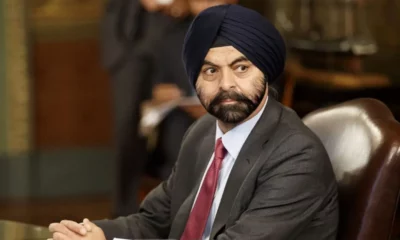

W’Bank chief Banga expects rich nations to meet Africa’s donation expectations
Ajay Banga, President of the World Bank, has said that he thinks donor countries will follow through on African leaders’...


Kenya: President Ruto assured of fresh IMF disbursement
This would help the economy, which is getting better after avoiding a debt problem earlier this year. Since the government...


In 30 years, half of Nigerian biscuit companies went out of business— Manufacturers
The Manufacturers Association of Nigeria has claimed that in the last 30 years, half of the companies in the biscuit...


Nigeria: Expect nationwide blackout for three months if electricity tariff increase is not implemented— Power Minister
Nigeria’s Minister of Power, Adebayo Adelabu, has warned that there would be a nationwide power outage for three months if...


Village Capital partners Norad to launch climate-focused programme in Africa
Accelerator programme facilitator, Village Capital, has struck a partnership with Norwegian development agency, Norad, to launch an an ecosystem-building programme...
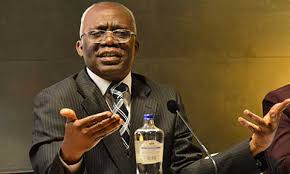

Nigeria: Human rights lawyer accuses govt of acting World Bank, IMF script on electricity tariffs hike
Nigerian human rights lawyer and advocate, Femi Falana, has accused the President Bola Tinubu government of acting out a script...


Wizkid, Davido’s online battle gets nasty as they exchange ‘dirty’ tweets
The online battle between two of Nigeria’s biggest music stars, Ayodeji Balogun, aka Wizkid, and David Adedeji, popularly known as...
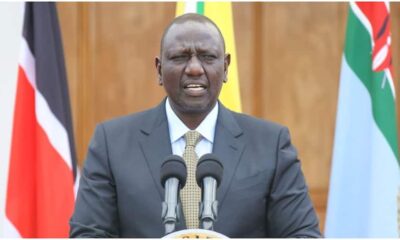

African leaders want record World Bank financing to address climate change
Ahead of a World Bank conference scheduled for later this year, African leaders on Monday called for rich countries to...
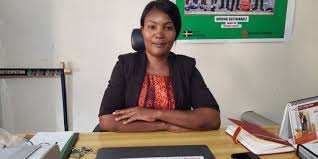

Conservationist, Kearns, names intolerance and digital media abuse as threats to media freedom
Nsama Kearns, the Executive Director of Care for Nature, speaks on the indispensable role of a free media in society....
Trending
-

 Culture1 day ago
Culture1 day agoWizkid, Davido’s online battle gets nasty as they exchange ‘dirty’ tweets
-

 Tech21 hours ago
Tech21 hours agoVillage Capital partners Norad to launch climate-focused programme in Africa
-
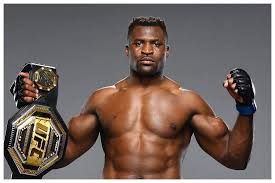
 Sports21 hours ago
Sports21 hours agoCameroon’s boxing icon Francis Ngannou loses 15-month-old son
-

 Metro1 day ago
Metro1 day agoNigeria: Human rights lawyer accuses govt of acting World Bank, IMF script on electricity tariffs hike


